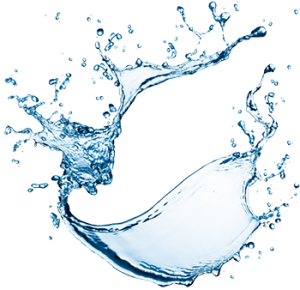
Q. What is IV hydration therapy?
A. IV hydration therapy is a treatment that utilizes an intravenous drip to introduce vital electrolytes, minerals, and amino acids directly and immediately into the body. This is beneficial because higher quantities of nutrients can be infused into the body than would be possible orally.
Q. Why is it important to be properly hydrated?
A. The body needs a certain amount of water to work properly. Hydration therapy may be necessary for some. In fact, a lack of water is the number one cause of daytime fatigue. Seventy-five percent of the U.S. population is chronically dehydrated. Thirty-five percent of the people in the U.S. mistake thirst for hunger. Metabolism will slow down as much as 3% when a person is even MILDLY dehydrated. Mild dehydration may not cause any obvious symptoms, but severe dehydration is a medical emergency and may be life-threating.
Q. What causes dehydration?
A. Dehydration is caused from the body loosing too much water. Its normal to lose some water each day from movements and urinating, but sometimes a person can lose large amounts of water from vomiting, diarrhea, sweating, not drinking fluids from an upset stomach or sore throat, or taking medicines that cause water loss called diuretics.
Q. What are the signs of dehydration?
A. There may not be any signs with mild dehydration, but as dehydration progresses people may feel thirsty, urinating less, or have a darker color urine, no tears when a child cries, dry mouth or lips, feeling tired, dizzy or lightheaded.
- Headache
- Nausea
- Vomiting
- Low blood pressure
- Sleepiness
- Dry cool skin that doesn’t bounce back when you pinch it
- Little or no urination and any urine color that is darker than usual
- Irritability and confusion
- Constipation
- Muscle cramps
Severe dehydration can cause people to stop breathing and go into a coma.
Q. How does IV therapy work?
A. IV therapy works by replacing fluids through a needle directly into the vein so that it doesn’t need to pass through the stomach. IV therapy can work better than drinking fluids sometimes because they give the body the right amount of water and salts.
Q. Who is eligible for IV hydration therapy?
A. Those who are dehydrated may benefit from IV rehydration therapy. People who have diarrhea that lasts more that 2-3 days, vomiting that lasts over 1 day, those who can’t keep fluids down, people urinating more than usual, if you haven’t had anything to drink in several hours, or haven’t needed to urinate in 6-8 hours.
Q. What conditions can IV therapy treat?
A. Food poisoning, hangovers, diarrhea, vomiting, upset stomach, fevers, lack of energy, sunburns, lack of drinking fluids due to a sore throat or nausea.
Q. Is IV therapy safe?
A. Yes, although IV therapy is typically a safe and easy procedure, it is critical that it’s performed by a trained medical professional in a sterile environment. IV therapy patients usually experience very few – if any – side effects. Typical side effects (if any) may include swelling, tenderness, or discomfort.
Q. Why is IV therapy so popular? Is it just a trend?
A. IV therapy is popular because it works. Physicians have actually been using it for years to safely and successfully treat and manage a range of health issues and help patients to boost their total health. We live in a time and age where people are often on the go, and want to feel better fast. I don’t think wanting to be better soon is just a trend, but time will tell.
The information provided is for general interest only and should not be misconstrued as a diagnosis, prognosis or treatment recommendation. This information does not in any way constitute the practice of medicine, or any other health care profession. Readers are directed to consult their health care provider regarding their specific health situation. Marque Medical is not liable for any action taken by a reader based upon this information.

Favorite Platform

New Content




